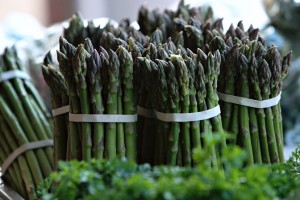This table isn’t about genetically-modified organisms (GMOs). Don’t eat GMOs! There are many studies showing that foods with GMOs are unsafe to eat. This table will not show the GMO content at all! Most commercial corn and soy are GMOs. Be wary of corn- and soy-containing commercial (non-organic) foods like tofu, popcorn, corn sweeteners, corn meal, corn oil, soy oil, soy protein, and dextrose.
As you know, I am very concerned about the usage of excitotoxins in prepared foods as well. You’ll have to read about them elsewhere. For this article, I am writing only about plain, simple foods eaten raw or cooked “from scratch.”
The best foods are raised organically, because this means that they cannot be GMOs. Also, the few chemicals used by the organic farmers are all known to be extremely safe. The best of the organic foods are the original plant foods that produce vegetables/fruits with seeds that reproduce the same plant. These are known as “heirloom” foods.
Heirloom foods have more food value than hybrid foods. Hybridized foods are created by cross-breeding different heirloom foods. Broccoli, for instance, is a hybridized food because it was a cross-breed between two (or more) different vegetables. (This was done by Mr. Broccoli, whose descendants are the producers of James Bond movies.) I was talking with a fourth-generation organic farmer who found that he had to feed 50% more hybridized grains to his livestock for them to grow the same amount as his heirloom grain-fed livestock. So the heirloom foods have more food value and thus are better for you than the hybridized foods.
Although the degree of hybridization of a food is important, we have an even greater concern. As consumers of foods that are not GMO, our greatest health danger is the amount of chemical residues present in the vegetables and fruits.
Here is a list of the contamination of non-organic vegetables and fruits–ranked from most contaminated to least contaminated. Do not eat GMOs or excitotoxins at all! Eat animal products that are at least antibiotic and hormone-free. Remember to bring this list the next time you go to the non-organic grocery store or go to a non-organic restaurant!
|
Vegetables Least safe to safest (based on chemical residue levels)
|
Fruits Least safe to safest (based on chemical residue levels)
|


